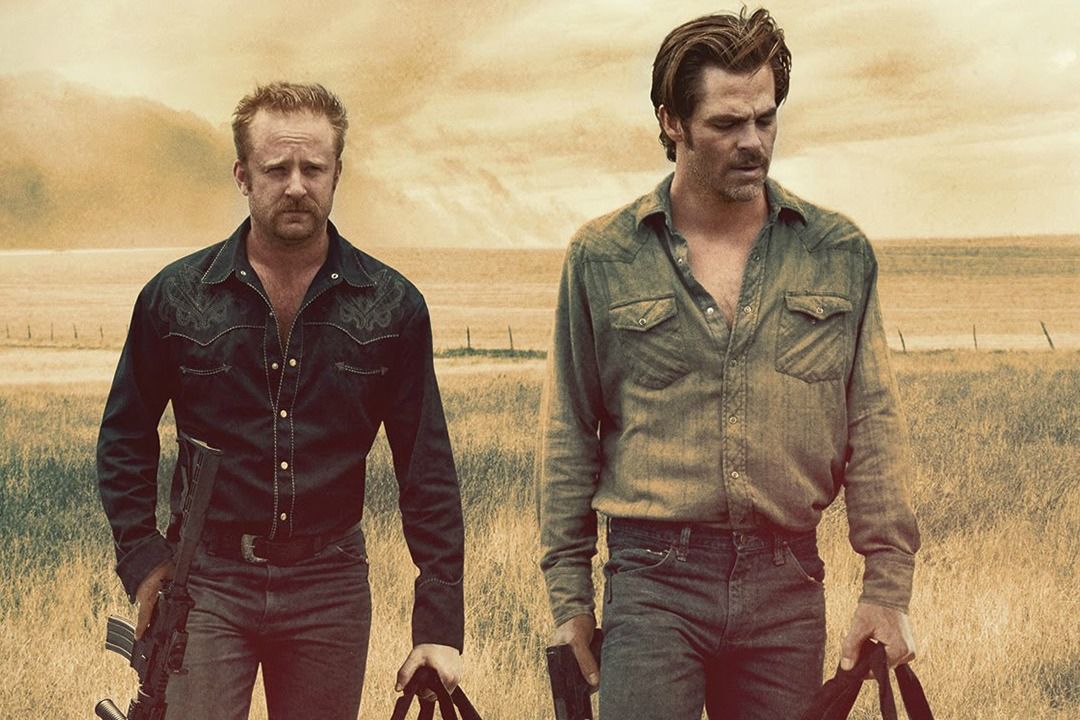Editors’ Note: In anticipation of the 89th Academy Awards on February 26, we present a series exploring the philosophical and theological elements in each of the nine films nominated for Best Picture. This review contains no spoilers.
https://www.youtube.com/watch?v=JQoqsKoJVDw
The best stories take us to new places and in doing so give a better understanding of ourselves. They persuade us to sympathize with the heroes—their struggles crush us—while sharing their ire for the dirty, no-good louts presented against them. Great plots challenge, intrigue, enchant, and ultimately force us to come to decide: What am I to do—who am I to be—in light of what’s happening here? Good stories end happily ever after but great ones leave us thirsting for more.
This year’s Best Picture nominee Hell or High Water is a great one. Set in present-day West Texas, we meet cowboys, Comanches, and Texas Rangers in a desert expanse peppered with depressing “Fast Cash” billboards and flashing casino lights. The film tells of two brothers, Tanner and Toby Howard (played by Ben Foster and Chris Pine, respectively), who resort to robbing Texas Midland Banks in order to pay off a mortgage debt on their recently-deceased mother’s ranch. A vicious cycle of poverty and a long memory of oppression loom across the story’s milieu; the only respite known to most in this place is found at the bottom of an upturned Shiner Bock.
The soundtrack is two parts haunting string arrangements, one part “nasty music” (electric guitar riffs with big, warm, vintage-sounding country vocals), one part honky tonk, and one part good ole’-fashioned country. The Nick Cave and Warren Ellis-composed mix accentuates the characters’ already distinct personalities and moves us to question what’s happening beneath the surface and why: Why shouldn’t the Howard boys rob from the bank chain which took advantage of their unwitting mother?
We’re invited to see the brothers as Robin Hood and Little John types—sporting rifles and pistols in jalopies instead of bows and arrows on horseback—stealing from the rich to unmask and defeat a rigged system if only for their family’s well-being. The two are immediately appealing as a protagonist duo with a yin-yang relationship: the ex-con Tanner’s playful yet nervy personality well complements Toby’s respectful, studied reserve.
Enter the Texas Rangers Marcus Hamilton, played by Best Supporting Actor nominee Jeff Bridges, and Alberto Parker, played by Gil Birmingham. Marcus’ seasoned approach to administering justice is direct and thorough yet (similar to Tanner) playful. While not always chummy with Marcus, Alberto makes for a perfect sidekick; Marcus is on the cusp of retirement and Alberto, being half-Comanche, half-Mexican, is the begrudging recipient of an onslaught of Marcus’ caustically racist teasing. The two attempt to bring about a conclusion to the robberies as the Howard boys seek to administer their own form of justice in continuing their crime-spree.
So who are we to support? In numerous well-conceived ways, the two pairs of men mirror one other. Most obviously, there’s an element of mentorship in both relationships. Wayward as he may be, Tanner’s love for Toby is undeniable. The movie includes fraternal affection throughout, from the Howards’ wrestling in the yard to shared shots of whiskey to brief yet intimate exchanges of gratitude. One post-heist scene shows Tanner serenading the uptight Toby with the country song, “You Ask Me To.” Tanner gives a distinctive yelp; Toby, who is clearly uncomfortable until this point with the bank robbing project he devised, responds in kind with a yelp as a smile subtly forms on his lips. Their love, though challenged by their sins and struggles, runs deep. Later, in a quiet moment the night before the film’s climactic scene, Toby asks Tanner why he decided to risk his life to join in his scheme when he knew he could get caught. Without missing a beat, Tanner replies matter of factly, “Cause you asked, little brother.” Simple as that.
Though the older Rangers aren’t blood-related like the Howard boys, they share a different kind of bond as brothers in the law. In addition, these are brothers who share something in common beyond their badges, although they don’t immediately realize it. And herein lies perhaps the film’s greatest commentary, that is, on the interconnectedness of diverse heritages and the dependence of different cultures upon one another. In one scene while the Rangers are staked out at another Texas Midland Bank in anticipation of a Howards heist, Marcus once more gets to his racist teasings of Alberto, to which Alberto replies:
“A long time ago your ancestors was the Indians until someone came along and killed them. Broke ‘em down, made you into one of them. One hundred-fifty years ago all this was my ancestors’ land. Everything you could see, everything you saw yesterday. Until the grandparents of these folks took it. Now it's been taken from them. ‘Cept it ain't no army doin' it, it's those sons of bitches right there.” <points at Texas Midland Bank>
For the first time in the movie, Marcus has no facetious response.
It’s worth examining another scene which helps us further explore this history of violence and cycle of poverty. The Howards have exchanged their stolen money for poker chips at a casino located on a Comanche reservation. To blow off steam, Tanner plays cards; at his table is a stoic Comanche man. “Lords of the Plains!” Tanner teases as he beats the man in a hand, to which the man sternly corrects him, “Lords of Nothing.” Sensing the man’s anger, Tanner gets up to leave and the man confronts him. He says threateningly as he stands toe to toe with Tanner, “I am a Comanche. Do you know what it means? It means ‘Enemy to everyone.’” Tanner, staring straight into the man’s eyes, replies, “Do you know what that makes me?” A long pause. “A Comanche.” Beyond differences in physical appearance and particular histories, though not denying them, are a shared set of struggles and experiences of oppression. As Alberto had said earlier, it’s the same story, different chapter.
Who will redeem the suffering from their oppressors? Are those most effected aware of their own need for redemption? At what point is it necessary for the oppressed to take matters into their own hands? Such are the questions Hell or High Water poses. Perhaps the Howard brothers aren’t trying to justify their actions, but instead trying to point out the injustice of the rigged system. We’re left unsettled in a place somewhere between . . . I think you know where I’m going with this. The film’s ability to leave us conflicted, wondering, wanting more—yet not hopeless—this is what makes it great.

